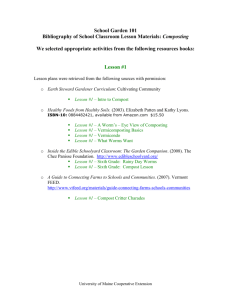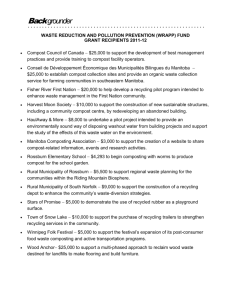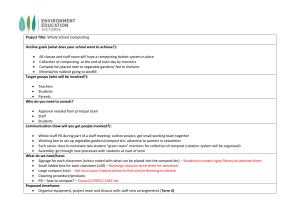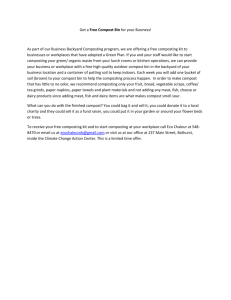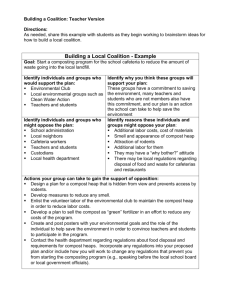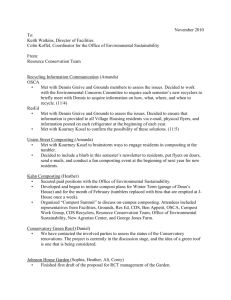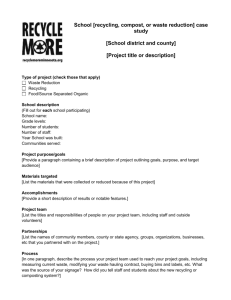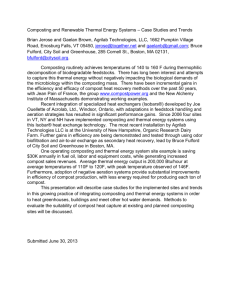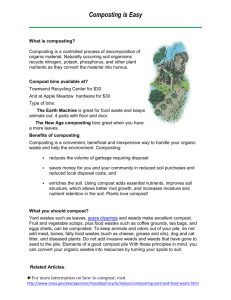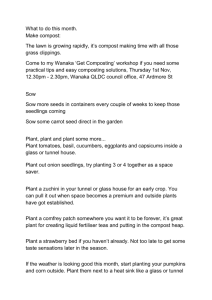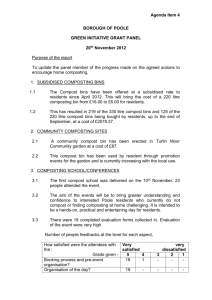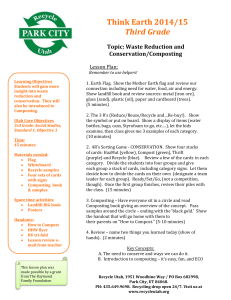1116-Eureka_Recyclin.. - US Composting Council
advertisement
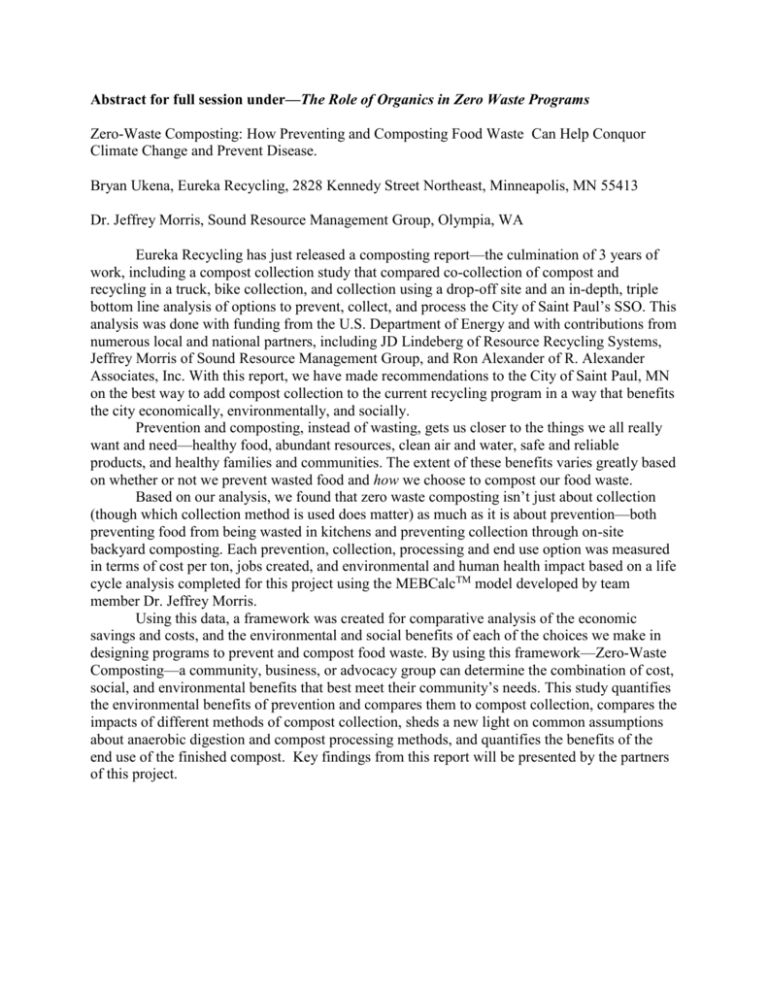
Abstract for full session under—The Role of Organics in Zero Waste Programs Zero-Waste Composting: How Preventing and Composting Food Waste Can Help Conquor Climate Change and Prevent Disease. Bryan Ukena, Eureka Recycling, 2828 Kennedy Street Northeast, Minneapolis, MN 55413 Dr. Jeffrey Morris, Sound Resource Management Group, Olympia, WA Eureka Recycling has just released a composting report—the culmination of 3 years of work, including a compost collection study that compared co-collection of compost and recycling in a truck, bike collection, and collection using a drop-off site and an in-depth, triple bottom line analysis of options to prevent, collect, and process the City of Saint Paul’s SSO. This analysis was done with funding from the U.S. Department of Energy and with contributions from numerous local and national partners, including JD Lindeberg of Resource Recycling Systems, Jeffrey Morris of Sound Resource Management Group, and Ron Alexander of R. Alexander Associates, Inc. With this report, we have made recommendations to the City of Saint Paul, MN on the best way to add compost collection to the current recycling program in a way that benefits the city economically, environmentally, and socially. Prevention and composting, instead of wasting, gets us closer to the things we all really want and need—healthy food, abundant resources, clean air and water, safe and reliable products, and healthy families and communities. The extent of these benefits varies greatly based on whether or not we prevent wasted food and how we choose to compost our food waste. Based on our analysis, we found that zero waste composting isn’t just about collection (though which collection method is used does matter) as much as it is about prevention—both preventing food from being wasted in kitchens and preventing collection through on-site backyard composting. Each prevention, collection, processing and end use option was measured in terms of cost per ton, jobs created, and environmental and human health impact based on a life cycle analysis completed for this project using the MEBCalcTM model developed by team member Dr. Jeffrey Morris. Using this data, a framework was created for comparative analysis of the economic savings and costs, and the environmental and social benefits of each of the choices we make in designing programs to prevent and compost food waste. By using this framework—Zero-Waste Composting—a community, business, or advocacy group can determine the combination of cost, social, and environmental benefits that best meet their community’s needs. This study quantifies the environmental benefits of prevention and compares them to compost collection, compares the impacts of different methods of compost collection, sheds a new light on common assumptions about anaerobic digestion and compost processing methods, and quantifies the benefits of the end use of the finished compost. Key findings from this report will be presented by the partners of this project.
